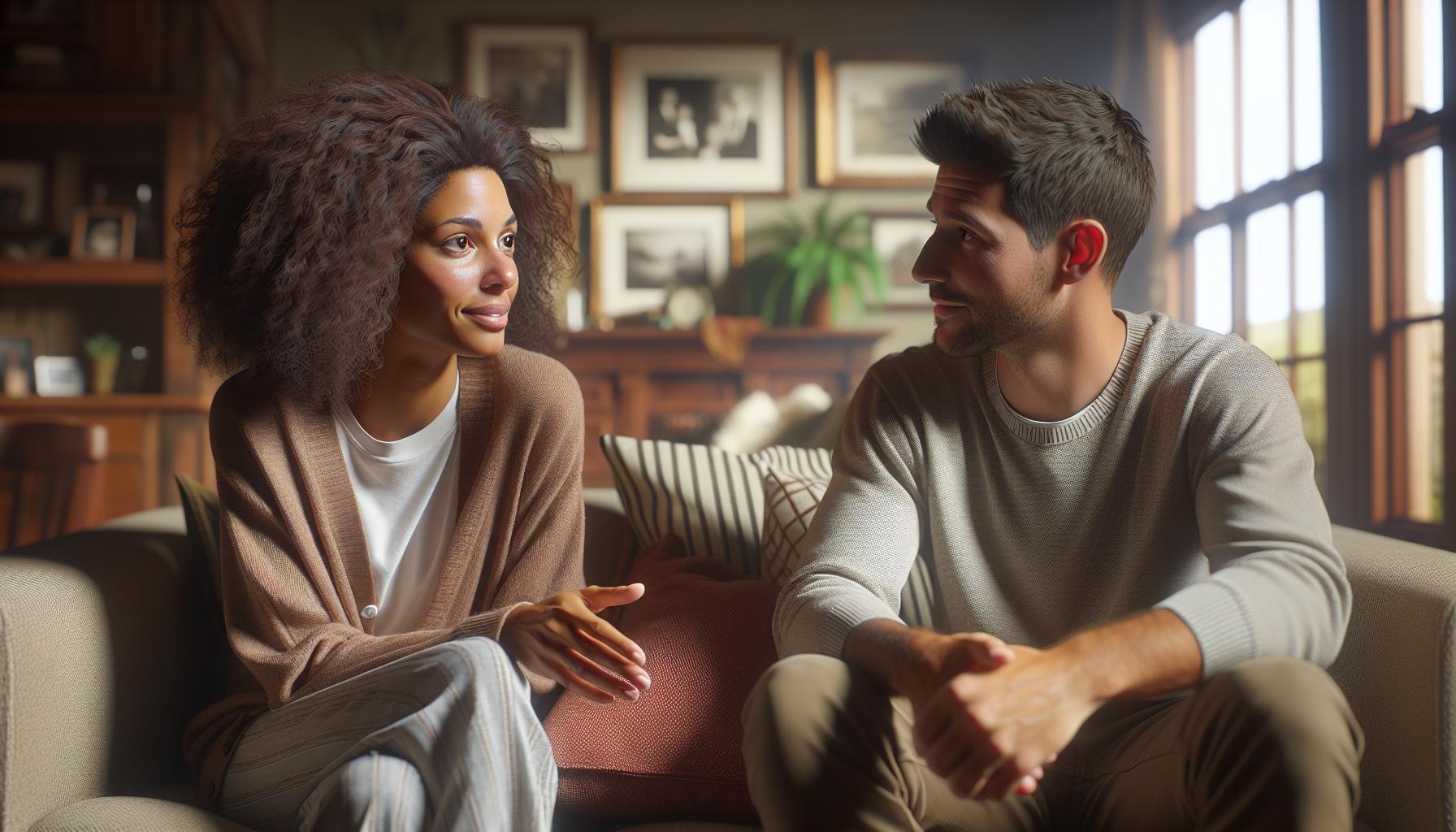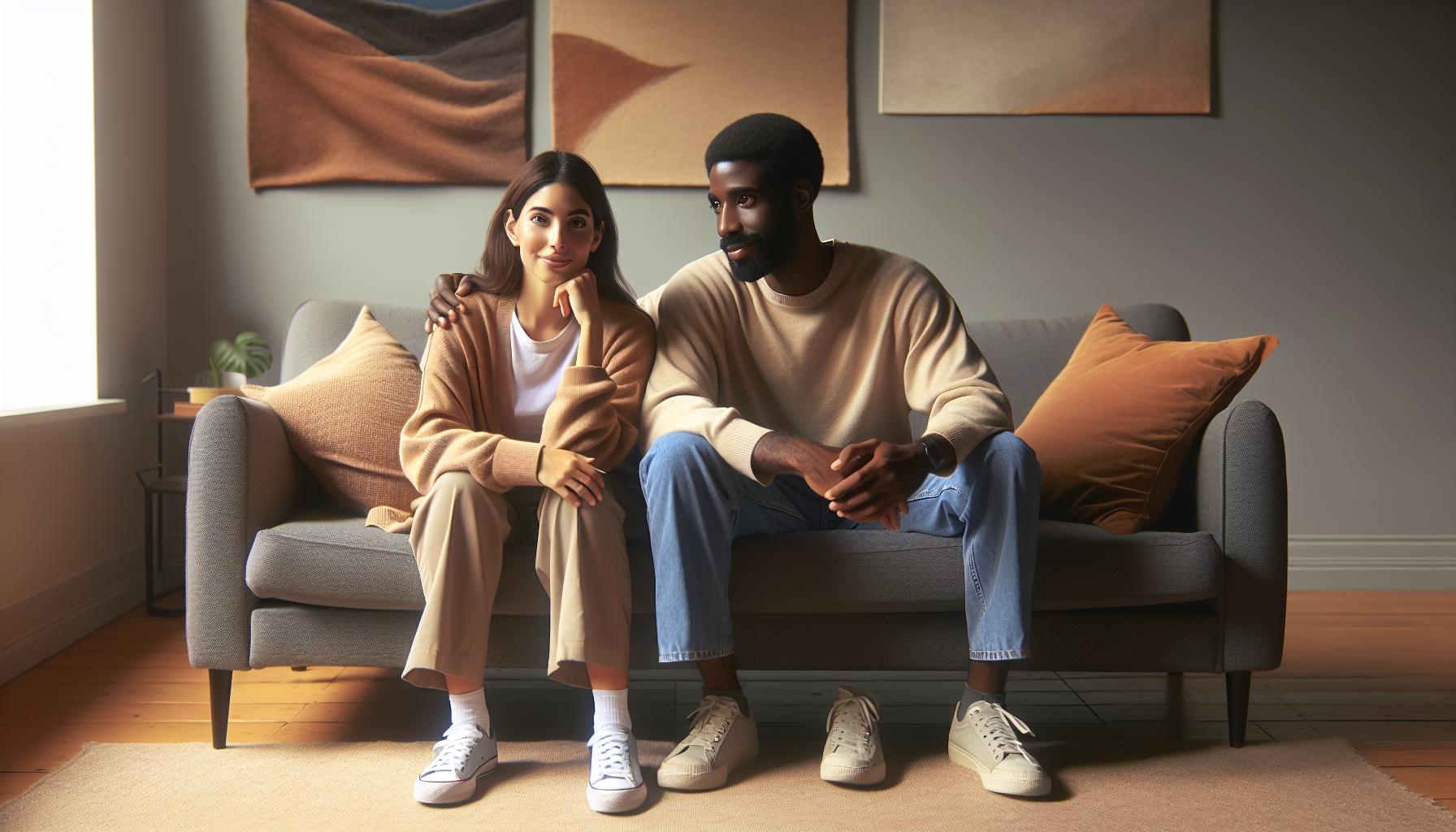Marriage and relationship counseling is like a GPS for love. When couples find themselves lost in the maze of misunderstandings and unmet expectations, a skilled counselor can help them navigate back to each other. It’s not just about fixing what’s broken; it’s about building a stronger foundation for the future.
Understanding Marriage And Relationship Counseling
Marriage and relationship counseling serves as a vital resource for couples seeking to improve their partnerships. This form of support focuses on clarifying communication and addressing issues that may disrupt harmony.
Definition And Importance
Marriage and relationship counseling involves professional guidance for couples addressing conflicts and enhancing their connection. Counselors utilize therapeutic techniques to facilitate open discussions, thus fostering understanding. The importance of this counseling extends beyond mere problem-solving. It aids individuals in discovering underlying patterns contributing to their challenges. Couples often identify the root causes of discord, enabling them to rebuild trust and intimacy. Statistics indicate that over 70% of couples report improvements in their relationships after receiving counseling, highlighting its significant impact.
Common Issues Addressed
Counselors frequently address various issues that affect romantic partnerships. Communication difficulties often appear, leading to misunderstandings and frustration. Conflicts related to finances can also arise, creating stress within the relationship. Infidelity, whether emotional or physical, emerges as another critical concern. In addition, differing parenting styles present challenges for many couples. Moreover, couples frequently navigate issues surrounding intimacy and affection. By identifying these common problems, counselors help partners develop effective strategies for resolution.
Types Of Counseling Approaches

Various counseling approaches accommodate different needs within marriages and relationships. Understanding these methods enables couples to choose the most fitting option for their situation.
Individual Counseling
Individual counseling focuses on one partner’s personal growth and healing. It provides a safe space for exploring individual emotions, thoughts, and behaviors. Clients often gain insights into their role in the relationship dynamics. This method might address self-esteem issues, past trauma, or personal stressors affecting the partnership. Coaches guide individuals in developing coping strategies to foster healthier connections. The ultimate goal is enhancing self-awareness, which can positively impact the shared relationship.
Couples Counseling
Couples counseling targets the relationship as a whole, emphasizing communication and understanding. Partners engage with a counselor to discuss their concerns and feelings openly. They work together to identify patterns of behavior contributing to conflict. Through guided sessions, couples learn effective communication techniques and conflict-resolution strategies. Sessions focus on building trust, intimacy, and collaboration. Statistics indicate that over 70% of couples find improvements in their relationships after participating in couples counseling.
Family Therapy
Family therapy encompasses a wider scope that includes all family members, recognizing their interrelated roles. This approach addresses familial issues that affect couples, such as parenting disagreements or sibling conflicts. By involving everyone in the discussion, it aims to improve overall family dynamics. Sessions typically explore communication styles and collective problem-solving methods. Therapists encourage each member to express feelings and viewpoints. The goal is to strengthen relationships among all family members, creating a harmonious environment for the couple.
Benefits Of Marriage And Relationship Counseling

Marriage and relationship counseling offers numerous advantages that enhance partnerships. Couples often experience significant improvements in their relationships through structured support.
Improved Communication
Counseling fosters open dialogue between partners. Many find that expressing feelings becomes easier in a safe and supportive environment. Professionals guide couples in identifying communication barriers and developing strategies to overcome them. Effective communication allows partners to articulate needs and desires more clearly, which can reduce misunderstandings and resentment.
Conflict Resolution Skills
Conflicts are a natural part of any relationship. Counseling equips couples with essential skills to address disputes without escalating tensions. Therapists help partners understand patterns of conflict and guide them in finding constructive solutions. By learning to navigate disagreements effectively, couples develop a deeper appreciation for each other’s perspectives, leading to a more harmonious relationship.
Strengthened Emotional Connection
Counseling significantly enhances emotional bonds between partners. Couples explore vulnerabilities and foster intimacy through guided discussions. Understanding each other’s feelings and experiences brings partners closer together, promoting empathy and compassion. This strengthened emotional connection helps create a resilient partnership capable of withstanding life’s challenges.
Choosing The Right Counselor
Finding the right counselor plays a crucial role in the effectiveness of marriage and relationship counseling. A well-matched counselor can significantly enhance the counseling experience and outcomes.
Qualifications To Look For
Look for counselors with specific credentials, such as a Master’s degree in psychology or social work. Verify that they hold licenses like Licensed Marriage and Family Therapist (LMFT) or Licensed Professional Counselor (LPC). Experience with couples therapy proves beneficial; counselors experienced in resolving conflicts between partners often yield better results. Consider the therapeutic approach that resonates with you; counselors may use methods like Emotionally Focused Therapy (EFT) or Cognitive Behavioral Therapy (CBT). Finding a counselor who specializes in the issues you face, such as infidelity or communication difficulties, ensures tailored support.
Questions To Ask During Consultation
Inquire about their experience working with couples to establish expertise. Ask about their counseling style and methods, as a good fit can enhance comfort and openness during sessions. Discuss the potential length of counseling because certain issues may require extended engagement. Request clarification on session structure and frequency, ensuring it aligns with your schedule and commitments. Finally, ask how they measure progress and success during counseling to understand how improvements will be tracked.
Conclusion
Marriage and relationship counseling offers couples a pathway to healing and growth. By fostering open communication and addressing underlying issues, couples can rebuild their connection and strengthen their partnership. Whether through individual sessions or couples therapy, the right approach can lead to significant improvements in understanding and intimacy.
Choosing a qualified counselor is essential for maximizing the benefits of counseling. With the right support, couples can navigate challenges more effectively and create a more fulfilling relationship. Investing in counseling can be a transformative step toward a healthier and happier future together.





